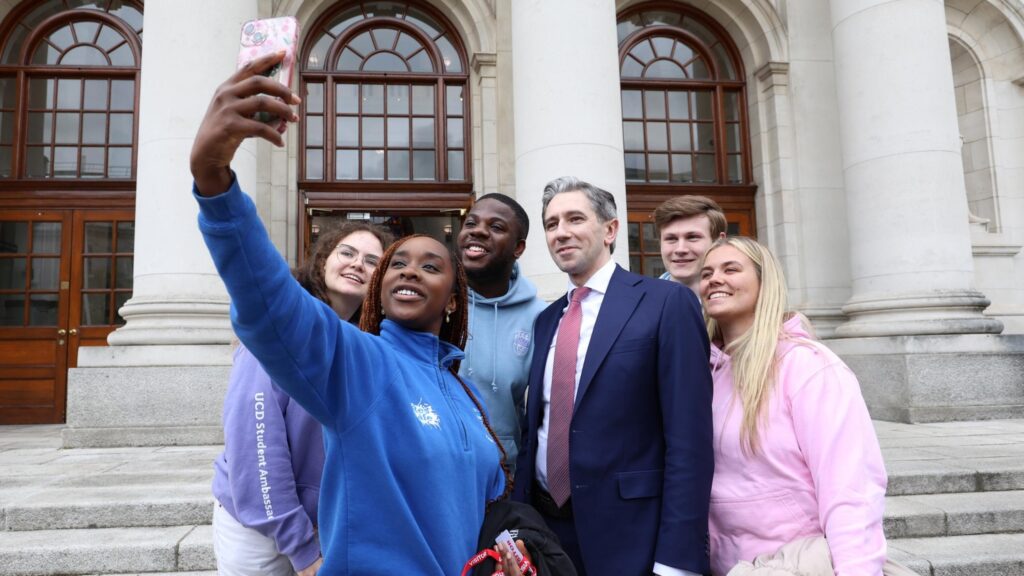
The weeks since Simon Harris was elected as party leader for Fine Gael and voted in as Taoiseach has seen several very early pre-budgets kites being flown on possible giveaways by both Fine Gael and Fianna Fail.
The result of this early kite flying however has not been particularly positive for either of the main government parties. Fine Gael do see a marginal gain of 1% in the last month, but given the major events the party has seen in that time, with Simon Harris becoming leader, that isn’t a particularly great return.
At the same time, support for Fianna Fail falls by 2%, leaving them with first preference support at just 14%. This is the worst they have seen for some time, with support having stabilised at around 16% in recent months.
The lack of a bounce in support as a result of these possible budget giveaways is somewhat explained by voter attitudes, that suggest they would far prefer to see more spent on public services, than tax cuts. In fact, 45% of voters suggest they would support increased funding for public services over tax cuts in any budget, while just 26% would prefer tax cuts over more funding for public services, and a similar proportion are unsure.
This view is particularly strong among those who are lapsed Fine Gael voters, so trying to use cuts as an incentive to win back lost voters doesn’t appear to be the best course of action, although it may be more appealing to new ones.
While Fianna Fáil declines, Independent candidates are making gains in today’s poll. The story of the rise in support for independents is an important one for poll watchers generally. All too often, I hear or read political commentators mention that any individual month’s poll results are “all within the margin of error”, suggesting there is nothing of interest happening or worth looking at in the poll. However, when polls are properly analysed, the trends over longer periods of time are much more important than month-on-month changes.
When analysing Independent candidates’ support, the last 5-6 polls have all shown movements well within the margin of error, with movements at most +or-2%. In any month, this would suggest the movements were of little interest. However, when the long-term trend is evaluated it shows gains of +8% support for Independent candidates in the past year.
In May 2023, support for Independent candidates stood at just 11%. Today their support stands at 19%, meaning if this remains the case going forward, they will have a significant impact on the outcome of any General Election.
In the past, voters have moved toward saying they will vote for Independent candidates, when they do not feel that any of the parties represent their views. In recent months we have shown that some of this was to do with anti-immigration sentiment, resulting in a shift away from Sinn Féin toward Independent candidates (and Aontú) that were seen to be more vocal in their objections to the government’s handling of the rise in international protection applicants.
In today’s poll, we asked about voter support for European plans to process asylum seekers in third party countries before entry to Ireland. Support for these plans is greatest amongst those saying they would vote for either Independent candidates or Fianna Fáil, again suggesting crossover on what will certainly be an important issue moving into the local and European elections in June.
This month, the gains for Independents appear to have come at Fianna Fáil’s expense, rather than Sinn Fein’s. The later has in fact seen gains in support again this month, rising to 27% of the first preference vote.
The longer-term trend however shows that it is those that voted for Sinn Féin in the past that are most likely to have moved to Independent, so there could be much more movement underlying the topline data, rather than a simple transfer from Fianna Fáil to Independent.
We often see that the support for independent candidates, recorded in polls between elections, falls away to some extent at actual General Elections, and it is clear from the rapid movement towards them, that the electorate’s current vote behaviour remains volatile.
We are already in campaign mode for the June elections, with many notable independents making a stand on immigration, exposing a flank of the government and even Sinn Féin. Couple this with the appetite of the electorate to punish the government (see Care & Family Referendums), and we may see ever growing numbers of floating voters who will decide the next election one way or another. There is plenty to play out before the results of that can be predicted or known.